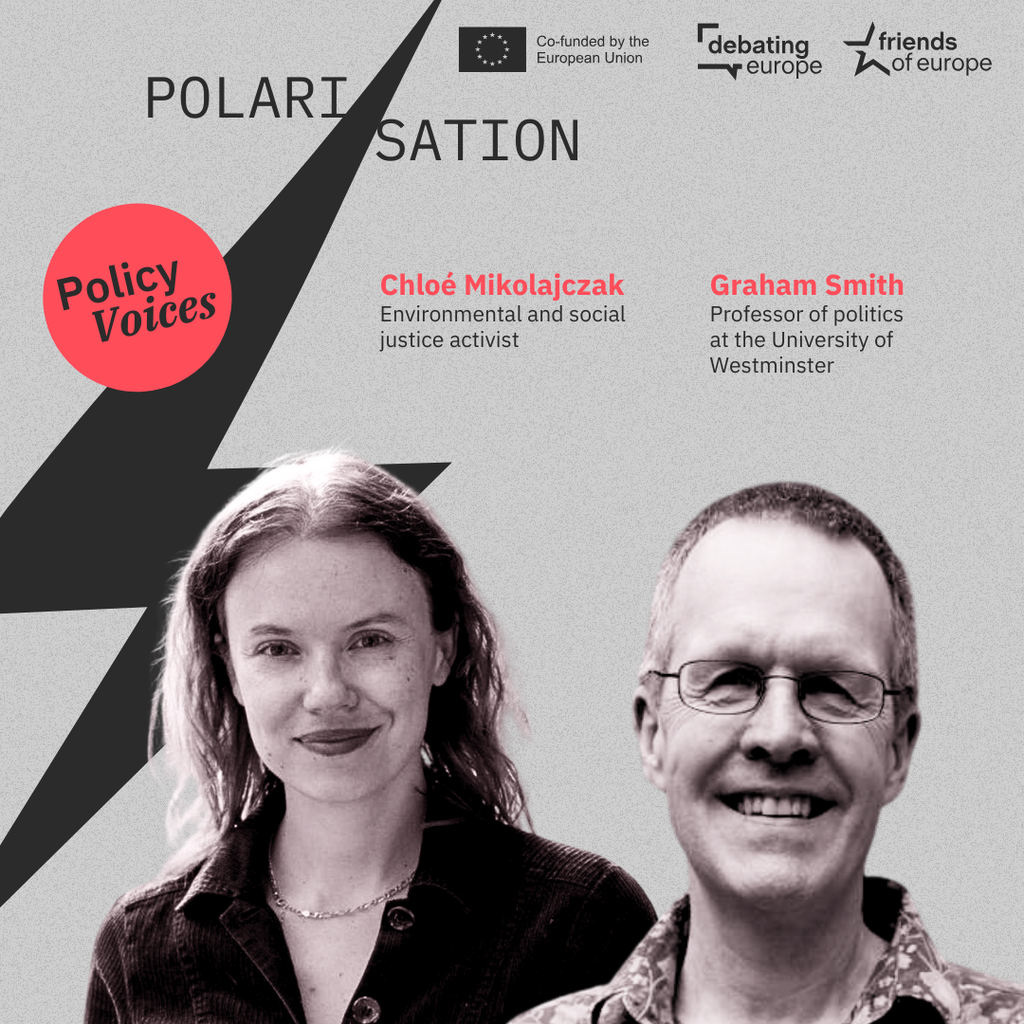Climate and Energy Summit 2025
Next event In person & livestreamed

- Area of Expertise
- Climate, Energy & Natural Resources
Climate, Energy & Natural Resources

Founder of Friends of Europe
Giles Merritt admires the Swedish teenager’s emotional impact, but fears it is obscuring the greater global warming challenge of population growth.
Few would contest the European Union’s claim to have triggered, and then led, the late 20th century’s worldwide debate on climate change. But three decades on, its leadership has been diluted and the debate itself has lost direction and clarity.
Public awareness of the threats posed by global warming has never been greater, yet there is also a sense of being rudderless in the face of a problem that’s growing faster than its solutions. So what leadership role could, and should, the EU reclaim, and how might it overcome people’s ennui over being lectured and held personally responsible for polluting?
There are twin challenges to be overcome: First, engaging public support in other than emotional terms. Second, deciding whether the right approach is to urge self-discipline chiefly on the citizens of developed countries.
Global warming is now being accelerated by population explosions in Africa and the Arab world
The gap between emotional responses to climate change and the practical steps needed to combat it was illustrated when Chile announced that rioting and civil unrest prevents it from hosting next month’s COP-25 climate change summit. That produced only limited media coverage, as did the Spanish government’s offer to host it instead.
Madrid won banner headlines, though, when it pledged to help teenage Swedish activist Greta Thunberg travel back to Europe by sea and so repeat her much-publicised sailing voyage to September’s UN General Assembly in New York.
No one would deny that 16-year-old Greta is a global phenomenon who has done much to revive flagging public interest in climate change. More controversial is the question of whether she is focussing attention on the right things.
It is obviously right to reduce the per capita carbon footprint of wealthy, industrialised countries, so the IPCC’s goals for reducing greenhouse gas emissions are important. They should not, however, obscure the fact that global warming is now being accelerated by population explosions in Africa and the Arab world.
Once the world’s rich countries wake up … we’ll be talking trillions rather than billions
The 20th century saw a fourfold increase in global population from 1.6bn to 6.1bn, but a twelvefold increase in CO2 emissions. This century will be far worse, with today’s 7.5bn people on earth forecast to reach 10bn by 2050 and possibly 13bn by 2100. The newcomers will not only add their own carbon footprints but these will also be larger because of higher living standards.
Unless there’s a major development drive, Africa’s 1.2bn population and the Arab world’s 360m will both double within 25 years. Snowballing birthrates can only be tackled by revolutionised aid strategies. This means massive solar energy projects to head-off the building of innumerable coal-fired power stations, internet-based education and training to reach rural communities, far more ambitious city planning and transport infrastructure construction, and investment in food processing, not the exporting of raw agricultural produce.
Once the world’s rich countries wake up to the fact that uncontrolled global population growth is a direct threat to them, we’ll be talking trillions rather than billions. Their development policies are predominantly charitable or humanitarian, and are pale shadows of what is really needed. EU aid to Africa runs at about €50bn a year, with the US, China and few other donors together matching that. Foreign investment in Africa is roughly the same, say, $100bn, bringing the total to around $200bn.
Greta Thunberg’s activism is admirable, but its scope is arguably too narrow
Fussing about air miles and frequent flyer bonuses may raise public consciousness, but barely scratches the surface of climate change. As well as re-thinking development policies and the tax arrangements needed to pay for them, the world’s wealthier countries will need to re-examine their trade and technology policies.
Freer technology transfer will be vital. For instance, China’s vehicle industry is reckoned to be nine times more polluting per unit than Germany’s. Is that a competitive advantage for the EU, or a fast track to climate disaster? Also, rich countries’ more obsolete vehicles aren’t scrapped but sold to poorer countries. Developing new technologies leading to a worldwide retro-fitting of tailpipe scrubbers should be a high priority.
Greta Thunberg’s activism is admirable, but its scope is arguably too narrow. And desirable as cleaning up industrialised nations’ excesses may be, that won’t stop global warming from becoming catastrophic. What is needed is a radical re-think of development policies, beginning with a merger within the European Commission of its environmental and development services. That would set an example to be followed around the world.
You may also like…
Next event In person & livestreamed

Past event In person & livestreamed

Past event In person & livestreamed

Past event In person & Livestreamed





Stay informed
We use cookies and similar technologies to adjust your preferences, analyze traffic and measure the effectiveness of our campaigns. Learn more about our privacy policy.